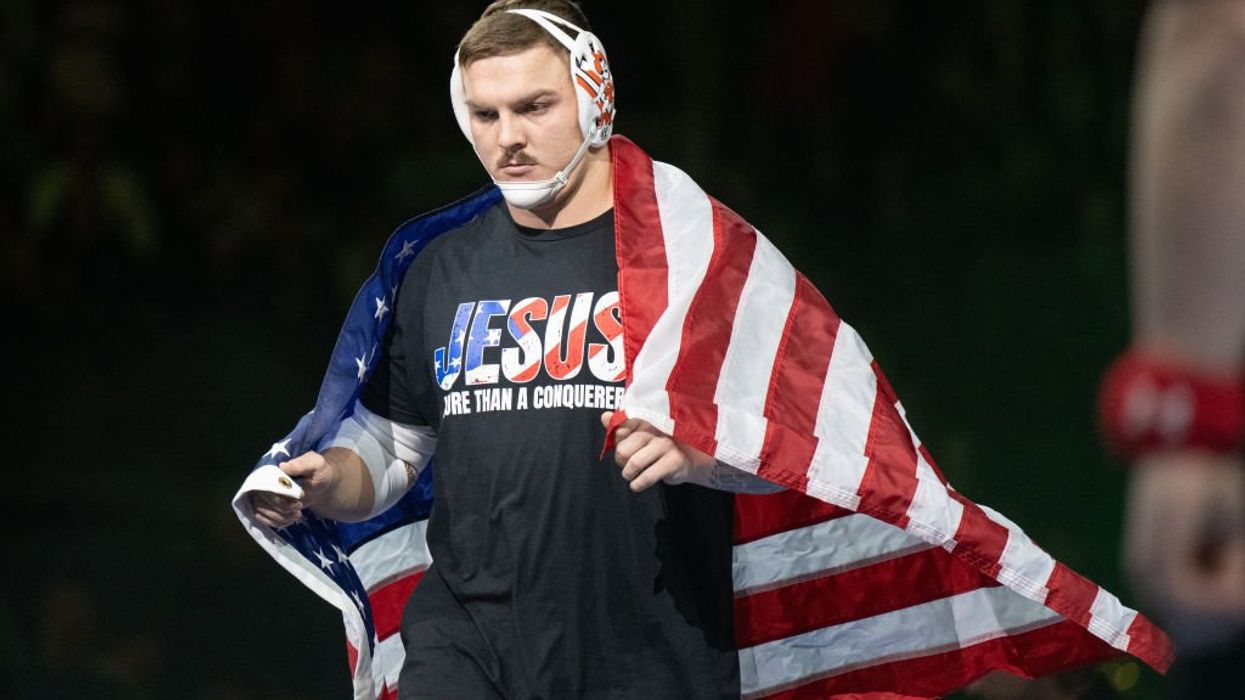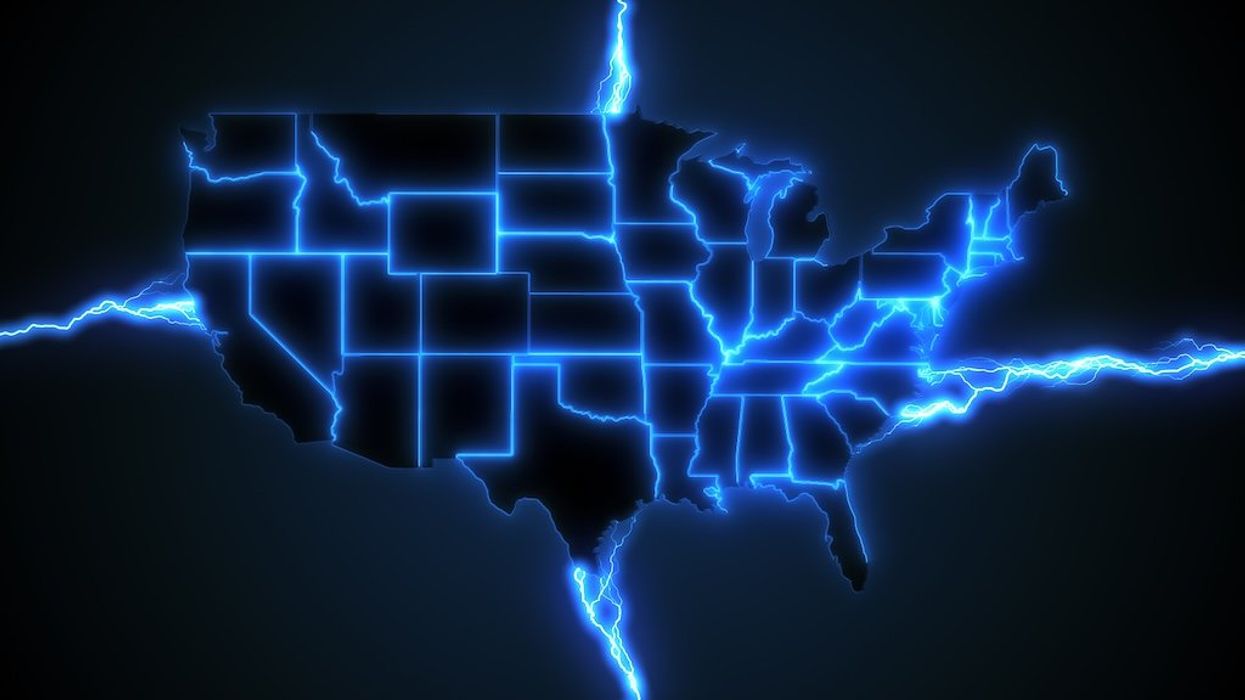
© 2025 Blaze Media LLC. All rights reserved.
On Wednesday, The Blaze posted a lengthy report looking at the ethics of undercover journalism. The comments on the post show a lively debate and wide-ranging views on what is considered ethical and acceptable in pursuit of a scoop.
Plenty of readers felt the new NPR exposé justified any ethical misgivings involved in producing it. Others felt that those seeking truths should hold to higher standards.
When undercover video like the NPR story first surfaces, we often look to see if there is raw video of the material used to produce the report as a basis for evaluating the accuracy of the representations made.
And we decided to do that in this case.
The Blaze's Pam Key, who produces most of our original videos, is experienced in reviewing hours and hours of raw audio/video to find key sections that can then be used in proper context. Her review of the NPR exposé identifies a number of areas to examine.
Do these areas reveal problematic editing choices? Are assertions made in the video misleading? Are the tactics used by the video producers unethical?
Clearly the NPR executives, particularly Ron Schiller, show poor and, at times, despicable judgment. Do any of the revelations from the raw video ameliorate that? Do their wrongdoing justify any wrongdoing by the video producers?
These are sometimes difficult matters to consider, especially for those who are pleased with the outcomes produced by the release of video reports like this; however, the ethical implications can be significant. And as we say around The Blaze watercooler...the truth has no agenda. Perspective and context are essential elements in bringing truth to the forefront. To exclude or alter them can obscure truths rather than reveal them.
We'll allow you to watch sections of the edited video that has been widely distributed...and then to compare those sections with the raw video that has been laudably released by the video producers.
1. Muslim Brotherhood connections
Much of the consternation over this video centers on the question of why would NPR executives meet with a group connected to Muslim Brotherhood. Did they know? And if Muslim Brotherhood is mentioned, how are the ties characterized? Is the edited video misleading on these points?
In this first section, the narration describes the players and says the NPR executives were preparing to meet with the members of “Muslim Education Action Center.” The narrator then describes the MEAC as a “Muslim Brotherhood front group.” It does not explain how the NPR executives would have a basis to believe they were meeting with a Muslim Brotherhood front group.
The raw video helps us evaluate how the NPR execs might perceive the men. The men describe themselves as board members but indicate that they are at lower levels in the organization…one of them explaining that he is relatively new to the board…the other saying he works in mostly an “observation basis.” You will see that in this clip.
Further, we compare the edited video with the raw video on the important section of how the actors describe the role/connection of the Muslim Brotherhood to their efforts. The edited video includes a reference to some of the original founders of MEAC being members of the Muslim Brotherhood in America. Is this the only reference and basis for the NPR execs to consider MEAC to have a Muslim Brotherhood connection? The raw video also includes a longer section of description that seems to downplay connections of the MEAC group to the Muslim Brotherhood as popularly perceived.
2. Does Ron Schiller react to "Sharia" mission statement with amusement?
The narrator notes that the MEAC website includes this phrase: “We must combat intolerance to spread acceptance of Sharia across the world."
Sharia is defined as “the sacred law of Islam.” But the interpretation of that definition has many variations across many Islamic traditions. That alone would not be a firm clue for the NPR executives of the group's beliefs.
Of greater concern, though, is how the video is edited at this juncture.
So after saying that the MEAC website advocates the “acceptance of Sharia,” the video cuts to the NPR exec saying, “Really? That’s what they said?” The cadence is jovial and upbeat and the narration moves on. The implication is that the NPR exec is aware and perhaps amused or approving of the MEAC mission statement. But when you look at the raw video you realize he was actually recounting an unrelated and innocuous issue about confusion over names in the restaurant reservation.
3. How does Schiller describe Republicans?
Schiller's negative comments about Republicans and conservatives have gotten a great deal of attention.
He clearly says some offensive things, while being very direct that he is giving his own opinion and not that of NPR. Still — a wildly stupid move!
But you may be surprised to learn, that in the raw video, Schiller also speaks positively about the GOP. He expresses pride in his own Republican heritage and his belief in fiscal conservatism.
4. The "seriously racist" Tea Party
NPR exec Ron Schiller does describe Tea Party members as “xenophobic…seriously racist people.”
This is one of the reasons why he no longer has a job!
But the clip in the edited video implies Schiller is giving simply his own analysis of the Tea Party. He does do that in part, but the raw video reveals that he is largely recounting the views expressed to him by two top Republicans, one a former ambassador, who admitted to him that they voted for Obama.
At the end, he signals his agreement. The larger context does not excuse his comments, or his judgment in sharing the account, but would a full context edit have been more fair? See what you think:
5. Are liberals more educated than conservatives?
You may also have seen a section of the video where Schiller describes liberals as more educated than conservatives. But the raw video shows a section where Schiller is hesitant to criticize the education of conservatives and the other executive, Betsy Liley, is outspoken in her defense of the intellects of Fox News viewers.
Would it have been fair to include the broader range of the executives statements? The impression of the original video, that the execs were only hostile toward Republicans and conservatives, is incorrect.
6. Does NPR need federal funding?
Let's look now at one of the other sections most featured in news reports about the original video — the comments about federal funding for NPR.
Schiller says that NPR, "in the long run," would be better off without federal funding and that most of the stations would survive a loss of such funding. The implication is that Schiller does not believe federal funding for NPR is important. In the raw video, however, Schiller explains the risk to local stations in more detail and why NPR is doing "everything we can to advocate for federal funding."
7. Audio issue number one
In the release of the raw video, there are two sections where the audio becomes an issue.
In this first clip the video (complete with "timecode" stamp) continues to play while the audio goes into some kind of glitchy loop.
This could be an actual glitch, though not one I've seen like this in 25 years of working with video editing.
It could also be a "glitch" edited into a loop to cover a section of the recording on purpose.
In any case here it is:
8. Audio issue number two
The video producers "redacted" a 1:24 section of the audio. They explain that this is for the "safety of a reporter illegally in foreign country."
The implication from the editing is that Betsy Liley is describing the activities of the reporter in question:
The Blaze contacted NPR to see if Liley recalls the nature of her comments here, but thus far they have been unable to accommodate our inquiry.
Conclusion:
Anyone looking at the edited version of the Project Veritas video would be concerned about the conduct and views expressed by the NPR representatives. But should we also be concerned about the deceptive nature of some of the video’s representations? Some will say no -- the end justifies any means, even if unethical. Others may be bothered by these tactics and view similar projects with a greater degree of skepticism.
In our posting yesterday on the ethics of undercover journalism, we found a range of views. One interesting view is held by Fred Barnes of The Weekly Standard. Barnes believes it is always wrong for a journalist to lie: “It‘s dishonest for anyone in journalism to pretend to be someone they’re not.”
But Barnes also believes this applies only to journalists. “This rule doesn’t apply to folks outside the profession,” he told The Blaze. Barnes views the O’Keefe production as a “political hit job and a quite clever and successful one at that.”
Barnes may not realize that O’Keefe describes his work as “investigative journalism,” and thus by Barnes definition — unethical.
And that is only on the issue of going undercover. But even if you are of the opinion, as I am, that undercover reporting is acceptable and ethical in very defined situations, it is another thing to approve of editing tactics that seem designed to intentionally lie or mislead about the material being presented.
For a further discussion of this post, see my analysis on Thursday's edition of The B-Cast:
Want to leave a tip?
We answer to you. Help keep our content free of advertisers and big tech censorship by leaving a tip today.
Want to join the conversation?
Already a subscriber?
more stories
Sign up for the Blaze newsletter
By signing up, you agree to our Privacy Policy and Terms of Use, and agree to receive content that may sometimes include advertisements. You may opt out at any time.
© 2025 Blaze Media LLC. All rights reserved.
Get the stories that matter most delivered directly to your inbox.
By signing up, you agree to our Privacy Policy and Terms of Use, and agree to receive content that may sometimes include advertisements. You may opt out at any time.


